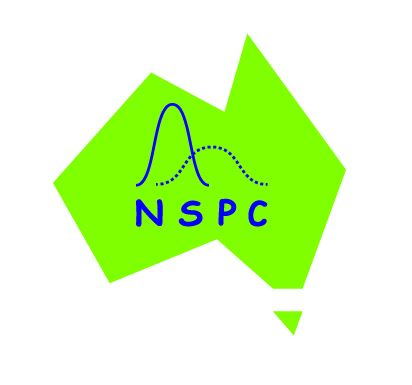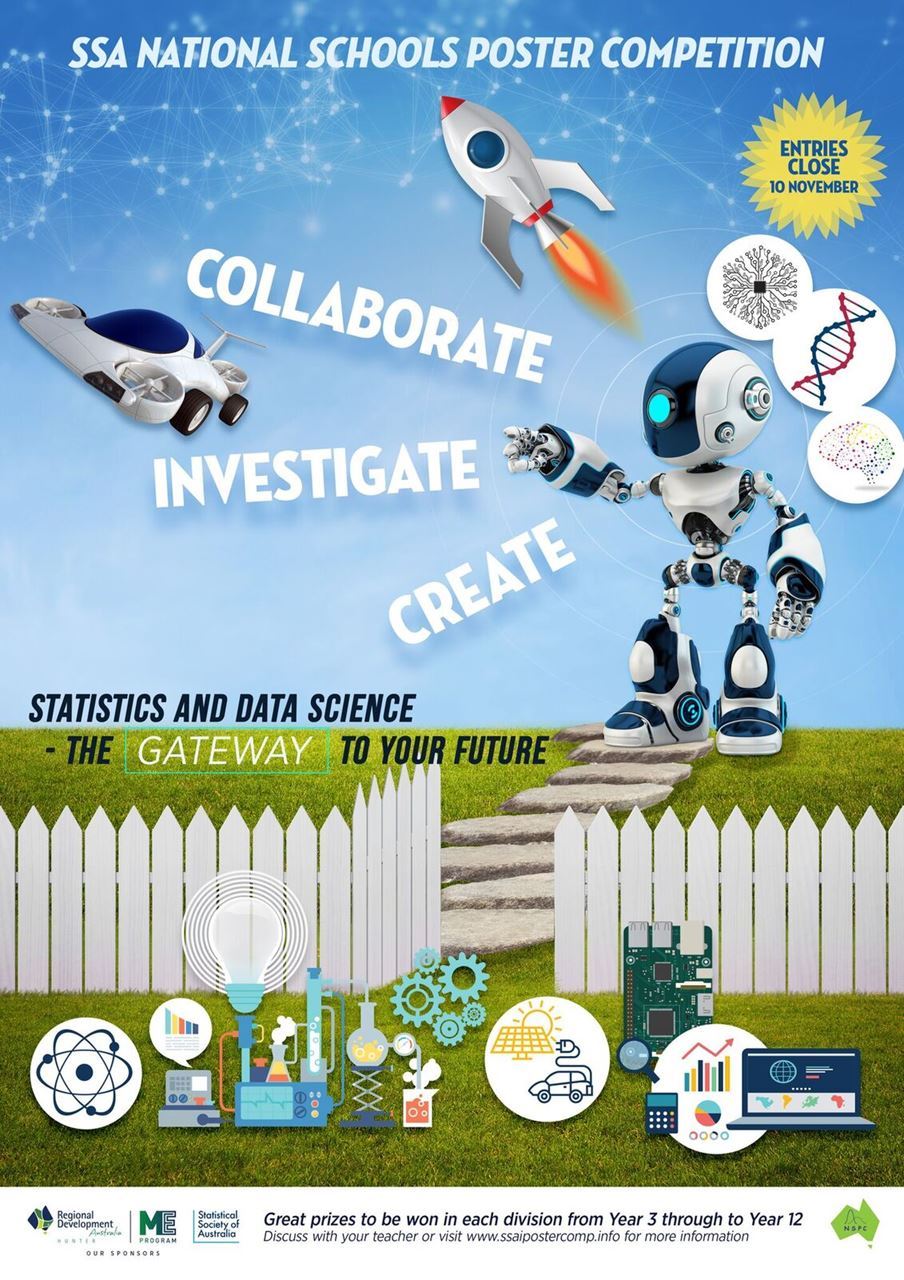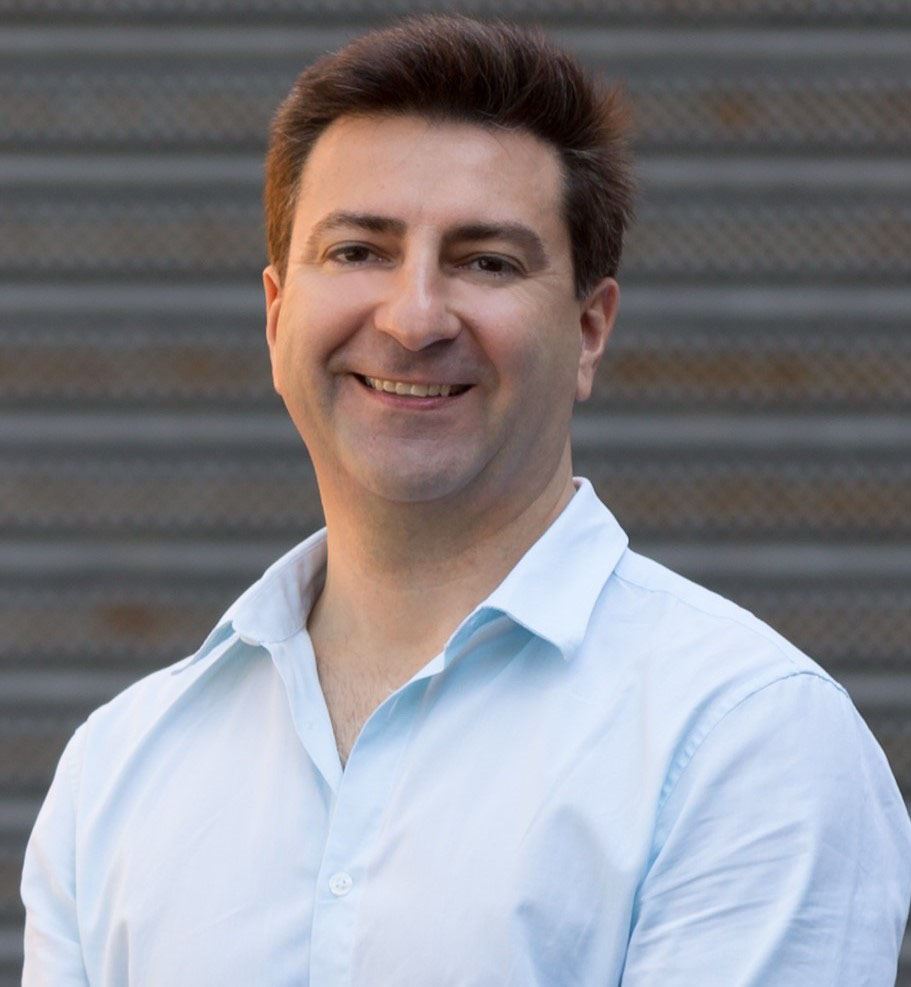 In 2022, the National Schools Poster Competition (NSPC) received 4 times the number of 2021 submissions, with 20 new schools submitting!
In 2022, the National Schools Poster Competition (NSPC) received 4 times the number of 2021 submissions, with 20 new schools submitting!
Topics are too numerous and diverse to list them all, but examples include: nutrition, health, psychology, sustainability, space, diversity and inclusion, biology, science, finance, aspects of political and social interest, sports, physics, chemistry, product preferences, physiology and solar energy.
Please view this year’s winners and honourable mentions, along with feedback. There’s even a capture-recapture based project, with lollies in the wild!
Summary information about the NSPC is provided at the end of this article.
Australia’s NSPC is entering its 10th year in 2023…and there’s significant news!
Emeritus Professor Tim Roberts AM and I, Professor Peter Howley, will be delivering a national initiative to Primary and Secondary Schools in 2023 entitled “Preparing for Industry 5.0 and beyond in light of COVID19 - facilitating the cradle-to-career life cycle” having received a Commonwealth Grant from theAustralian Government’s Department of Education’s Emerging Priorities Program for our project proposal.
The initiative will have significant engagement across the Australian education system with school administrators, educators, teachers and students nationally, as we conduct an integrated delivery of free:
· interactive online teacher Professional Learning workshops
· interactive online student workshops – including practical implementation and career opportunities
· two national student competitions – an online mini-solar vehicle competition and the NSPC
which develop Statistics, Systems thinking, Sustainability and STEM (SSSS) and associated cross-functional skills that:
ü are core to emerging workforce environments and needs
ü support national curriculum learning areas and outcomes
ü support general capabilities and cross-curriculum priorities
ü positively impacts the attitudes, aspirations & abilities of educators & the future workforce
We will seek to make a step-change in attitudes, aspirations and abilities of educators and the future workforce surrounding these core SSSS and cross-functional skills.
This national initiative builds upon our successful 2017 regional and rural NSW-focussed initiative (partial results in this 2020 SERJ publication – downloadable PDF available).
Industry 5.0 places research and innovation at the service of the transition to a sustainable, human-centric and resilient industry. Research & innovation and the associated cross-functional skills required are fundamental to, and supported by SSSS skills … the points of focus of this project.
We expect to engage over 400 schools nationally in our 2023 initiative!
Please inform your family, friends, colleagues and school contacts about this opportunity, including the NSPC, and invite them to contact me via peterhowley0@gmail.com or SSSS@postercomp.info to express interest in potentially participating or for more information as we develop our online platform.
NSPC Summary
 The NSPC provides an opportunity for students from Years 3 to 12 (ages 8 to 18) to work in teams of 2 to 5 and develop, implement and creatively report upon, in poster format, an investigation on any topic of interest to them. Students conduct small-scale versions of real-world investigations in teams, developing core statistical, STEM and cross-functional skills. They create an informative e-poster presentation communicating their investigation clearly, concisely and creatively.
The NSPC provides an opportunity for students from Years 3 to 12 (ages 8 to 18) to work in teams of 2 to 5 and develop, implement and creatively report upon, in poster format, an investigation on any topic of interest to them. Students conduct small-scale versions of real-world investigations in teams, developing core statistical, STEM and cross-functional skills. They create an informative e-poster presentation communicating their investigation clearly, concisely and creatively.
The competition is judged in five divisions: one for each of the Year 3-4, 5-6, 7-8, 9-10, 11-12 School Grades. Many additional resources are provided at the www.ssapostercomp.info website, including:
-
1 to 4-minute videos about the competition
-
Several approximate 4-minute videos from experts speaking on careers in statistics
-
Free software and simple worksheets
-
A dozen or so approximate 4-minute animated videos on introductory statistics topics
-
Tips, e-textbook, a file on how the NSPC links to and supports the National Curriculum
-
Annual lists of the winners and honourable mentions and their posters, along with feedback for each that is publicly available (since 2021) – to assist everyone in their future investigations.
Submissions are due annually by 10 November and we usually receive over 200 team entries.
Prizes (for both the winning team and the school of the winning team, for each Division) and honoraria for the many judges (professional statisticians) and IT and administrative support are possible thanks to support from the Australian Bureau of Statistics via the Statistical Society of Australia.
The importance of engaging students early in any endeavour, particularly statistics in this Data Age, cannot be overstated. Youth establish interests and career trajectories from an early age and connecting them with opportunities that are enjoyable, engaging, authentic and support the needed emerging workforce skills is critical.
School teachers have rarely if ever experienced statistics in practice and are unfamiliar with the diverse nature and wide reach of statistical thinking, techniques and applications. Teachers’ knowledge about the practicing statistician is at best limited, their focus has been on the many other topics and aspects of teaching. The teaching of statistics in school focusses on the theory or mechanics, rather than its practical applications, with statistics topics taught often in a manner not clearly part of a coherent whole nor authentically contextualised. The relevance of the discipline of statistics to areas of interest is lost, or at best unclear, for students; yet relevance is such a powerful motivator! Enter the NSPC!
Professor Peter Howley is the Chair of SSA's Statistical Education Section
Career Profile
Hunter Surgical Clinical Research Unit - Statistical Research Lead
Program Director - StepChange, MCB Business Partners
Hunter Medical Research Institute Affiliate
Medical College Centre, Macquarie University - Statistical Research Lead
International Statistical Institute - Elected Member
Chair - Statistical Education, Statistical Society of Australia
Vice President - Hunter Innovation and Science HUB
2018-19 Inaugural Science and Technology Australia STEM Ambassador
2019-20 Inaugural UON STEMM Ambassador
2018 Statistical Society of Australia Service Award
2017 International Statistical Institute’s Best Cooperative Project Award
2015 National OLT Citation – Contribution to Student Learning
